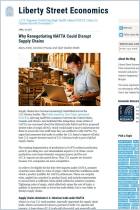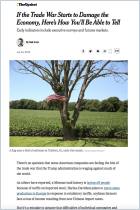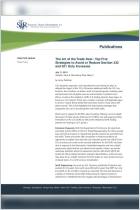Únase a getAbstract para acceder al resumen.

Únase a getAbstract para acceder al resumen.
Mary Amiti, Stephen J. Redding and David E. Weinstein
New China Tariffs Increase Costs to US Households
Federal Reserve Bank of New York, 2019
¿De qué se trata?
A study finds that tariffs on Chinese imports take money out of the pockets of American households.
Recommendation
This illuminating analysis from economists Mary Amiti, Stephen J. Redding and David E. Weinstein finds that the higher tariffs on Chinese exports to the United States that took effect in May 2019 will inevitably influence the daily lives of Americans, as the 10% levies did in 2018. Because tariffs both raise the prices of goods and lower the demand for them, the authors determine that the duties will create significant market distortions and burdens on consumers.
Summary
About the Authors
Mary Amiti is an assistant vice president at the Federal Reserve Bank of New York. Stephen J. Redding is an economics professor at Princeton University, and David E. Weinstein is an economics professor at Columbia University.



















Comment on this summary